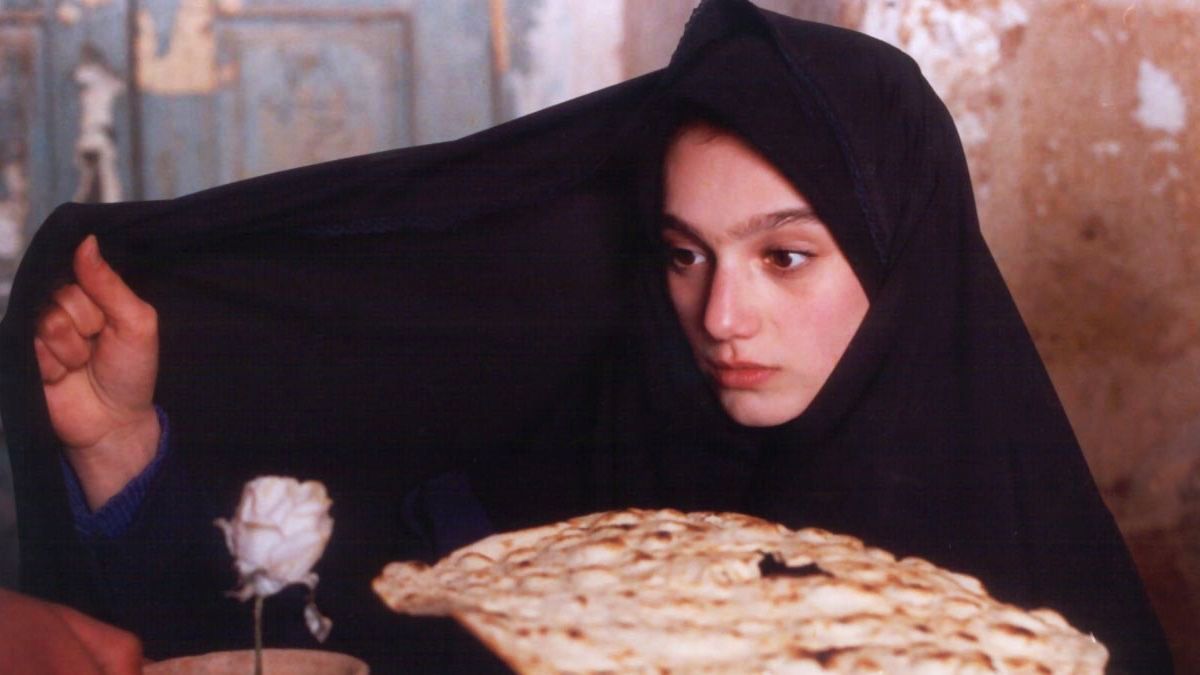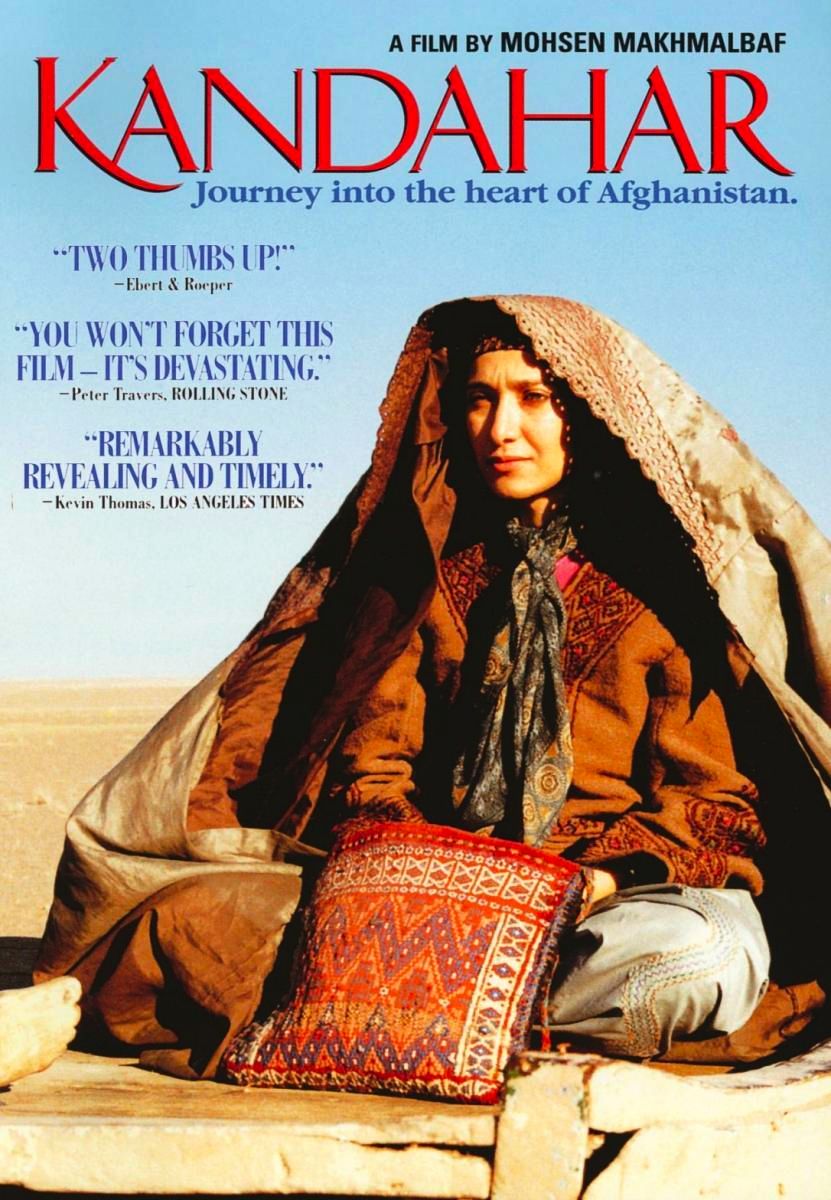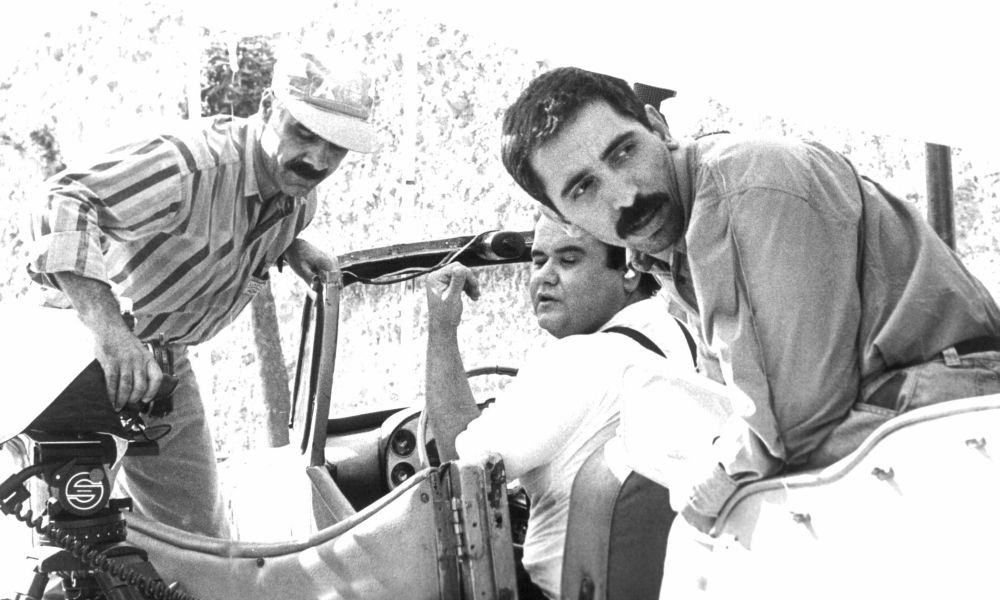"Mohsen Makhmalbaf is a major figure of Iranian cinema. He has written over 30 books and directed 27 films (features, documentaries and short films) in 10 different countries in Asia and Europe. Some of his films have been or are still banned from Iran. The work of Makhmalbaf can be seen as an extended commentary on the historical progression of the Iranian state and its people." - International Film Festival Rotterdam
Mohsen Makhmalbaf
Director / Screenwriter / Editor / Actor / Producer
(1957- ) Born May 29, Tehran, Iran
(1957- ) Born May 29, Tehran, Iran
Key Production Countries: Iran, France
Key Genres: Drama, Comedy, Psychological Drama, Comedy Drama, Family Drama, Docudrama
Key Collaborators: Mahmoud Kalari (Cinematographer), Moharram Zaynalzadeh (Character Actor), Shaghayegh Djodat (Leading Actress), Akbar Abdi (Leading Actor), Abbas Randjbar (Producer), Fatemah Motamed-Aria (Leading Character Actress), Mahaya Petrossian (Leading Character Actress), Majid Entezami (Composer)
Key Genres: Drama, Comedy, Psychological Drama, Comedy Drama, Family Drama, Docudrama
Key Collaborators: Mahmoud Kalari (Cinematographer), Moharram Zaynalzadeh (Character Actor), Shaghayegh Djodat (Leading Actress), Akbar Abdi (Leading Actor), Abbas Randjbar (Producer), Fatemah Motamed-Aria (Leading Character Actress), Mahaya Petrossian (Leading Character Actress), Majid Entezami (Composer)
"Often, his films, unlike those of his compatriot Abbas Kiarostami, are too clever and contrived to persuade emotionally or philosophically; nevertheless, his fertile imagination and fascination with life's relationship to art make for rewarding, challenging viewing." - Geoff Andrew (The Director's Vision, 1999)
"One of Iran's most acclaimed filmmakers of recent years, Mohsen Makhmalbaf was born in a poor district of Tehran and became politically active at an early age. At 15 he established an underground militia opposing the Shah's regime, and at 17 he was shot and arrested during a fight with a policeman. Makhmalbaf was sent to prison, where he spent more than four years - a period in which he read voraciously. Released following the Islamic Revolution of 1979, he wrote novels, stories and screenplays." - Richard Armstrong (The Rough Guide to Film, 2007)

A Moment of Innocence (1996)
"Controversial visual poet of Iranian New Wave; autobiographical and childhood themes; chronicles the history of Iran state and its people; often works with family members." - Joshua Klein (501 Movie Directors, 2007)
"Like the American Paul Schrader, he was raised in a fundamentalist religious household (Islamic, in Makhmalbaf’s case) and did not see a movie until after adolescence. Like the Russian Sergei Eisenstein, he began his career as a maker of revolutionary propaganda, only to run afoul of the authorities (many of his 1990s films have been banned in Iran) when his outlook broadened." - Robert Horton (International Dictionary of Films and Filmmakers, 2000)
"Makhmalbaf, one of Iran’s most prominent directors, is restless by nature. Constantly thinking of new ideas, endlessly curious about the world, he has made a film and written a book every year since 1981." - Saeed Kamali Dehghan (The Guardian, 2015)
"One of Iran’s most influential directors, whose 17 highly regarded features include Gabbeh (1997), A Moment of Innocence (1996), and Silence (1998), Makhmalbaf also founded the Makhmalbaf Film House as a custom-made mini-studio to nurture his family’s movie projects. Under its auspices he has mentored and written screenplays for award-winning debut features directed by his daughter Samira Makhmalbaf (The Apple, 1997, and The Blackboard, 1999) and by his wife Marziyeh Meshkini (The Day I Became A Woman, 2001)." - Liza Béar (BOMB Magazine, 2001)
"The entire evolution of his cinema has been a manifestation of his personal development, and the films he’s been making in this latest period of his life and career have shown a unique vision, a taste for poetic imagery and the medium’s cinematic possibilities, while still dealing with the social and political issues of religion, violence and human rights in Iran and Afghanistan." - Graziano Scaldaferri (Culture Trip)
"I’ve always been sad about the women’s situation in Iran and also about the lives of women who live in areas surrounding Iran. I feel women’s pain because I have seen it at close quarters when I was growing up. My grandmother was handed over to marriage when she was nine; my mother and my older sister were both handed over to marriage at the age of 12 because of hunger. I’ve seen women become prostitutes because of hunger and economic devastation. And there’s something about that pain and those problems that give me energy to write and make work about them, and I will never tire of it." - Mohsen Makhmalbaf (BOMB Magazine, 2002)
Selected Filmography
{{row.titlelong}}
GF Greatest Films ranking (★ Top 1000 ● Top 2500)
21C 21st Century ranking (☆ Top 1000)
T TSPDT R Jonathan Rosenbaum
21C 21st Century ranking (☆ Top 1000)
T TSPDT R Jonathan Rosenbaum
Mohsen Makhmalbaf / Favourite Films
Pather Panchali (1955) Satyajit Ray.
Source: Midnight Sun Film Festival (2019)
Pather Panchali (1955) Satyajit Ray.
Source: Midnight Sun Film Festival (2019)
Mohsen Makhmalbaf / Fan Club
Michael Sicinski, Kim Ji-seok, Mark Cousins, Gulnara Abikeyeva, John Cameron Mitchell, Richard Combs, Dina Iordanova, Robert Greene, Andrei Plakhov, Chris Boeckmann, Rasha Salti, Armond White.
Michael Sicinski, Kim Ji-seok, Mark Cousins, Gulnara Abikeyeva, John Cameron Mitchell, Richard Combs, Dina Iordanova, Robert Greene, Andrei Plakhov, Chris Boeckmann, Rasha Salti, Armond White.
"Fan Club"
These film critics/filmmakers have, on multiple occasions, selected this director’s work within film ballots/lists that they have submitted.
These film critics/filmmakers have, on multiple occasions, selected this director’s work within film ballots/lists that they have submitted.


